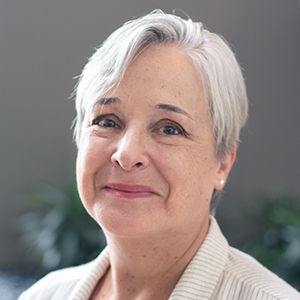Working knowledge
More than 30 years ago, I was employed as the parish administrator of a church, a huge, crumbling building in an underserved area of Washington, D.C. The parish ethos was to make maximum use of the building by opening it up to neighborhood service providers.
I was in my early 30s, a young mother with a degree in liberal arts and a vague interest in improving the world. My boss, the rector, was about 10 years older, one of the first women ordained as a priest in the Episcopal Church. The parish staff was bare bones and the budget small.
One dank winter afternoon, the heat stopped working. Complaining phone calls came from the preschool and free clinic upstairs. Our resident custodian (referred to in Anglican-speak as a sexton) was AWOL, so the rector and I made our way into the bowels of the church basement to the furnace, an ancient behemoth squatting in a dark corner. It required the regular draining of something called a McDonnell & Miller valve, a bit of maintenance that had gone neglected. We wrestled the valve open and, as steaming rusty water gushed into a bucket (and onto our shoes), the rector sighed and gave me a deadpan look.
“Another thing they didn’t teach me in seminary.”
Which brings me to careers in biochemistry and molecular biology.
As an undergrad, grad student and (maybe) postdoc, you’ve learned a whole lot about science. But how much were you taught about having a career as a scientist? More to the point, how much were you not taught? How much knowledge did you have to pick up outside the lab — about choosing a career path, finding a job, starting a lab, or managing a budget and personnel?
You’ve probably learned a lot from your experience, which is, as they say, the best teacher. Would you be willing to share some of that hard-won knowledge?
The August issue of ASBMB Today traditionally is given over to the vast topic of careers. It’s an opportunity for society members to pool their collective wisdom and help each other with the stuff they really need to know.
Every career has its McDonnell & Miller valves. We’d like to hear about yours. Maybe you want to write an essay. Maybe you just have a few words of wisdom. Either way, drop me a line. Deadline for the August issue is June 3.
Enjoy reading ASBMB Today?
Become a member to receive the print edition four times a year and the digital edition monthly.
Learn moreGet the latest from ASBMB Today
Enter your email address, and we’ll send you a weekly email with recent articles, interviews and more.
Latest in Opinions
Opinions highlights or most popular articles

Women’s health cannot leave rare diseases behind
A physician living with lymphangioleiomyomatosis and a basic scientist explain why patient-driven, trial-ready research is essential to turning momentum into meaningful progress.

Making my spicy brain work for me
Researcher Reid Blanchett reflects on her journey navigating mental health struggles through graduate school. She found a new path in bioinformatics, proving that science can be flexible, forgiving and full of second chances.

The tortoise wins: How slowing down saved my Ph.D.
Graduate student Amy Bounds reflects on how slowing down in the lab not only improved her relationship with work but also made her a more productive scientist.

How pediatric cataracts shaped my scientific journey
Undergraduate student Grace Jones shares how she transformed her childhood cataract diagnosis into a scientific purpose. She explores how biochemistry can bring a clearer vision to others, and how personal history can shape discovery.

Debugging my code and teaching with ChatGPT
AI tools like ChatGPT have changed the way an assistant professor teaches and does research. But, he asserts that real growth still comes from struggle, and educators must help students use AI wisely — as scaffolds, not shortcuts.

AI in the lab: The power of smarter questions
An assistant professor discusses AI's evolution from a buzzword to a trusted research partner. It helps streamline reviews, troubleshoot code, save time and spark ideas, but its success relies on combining AI with expertise and critical thinking.

